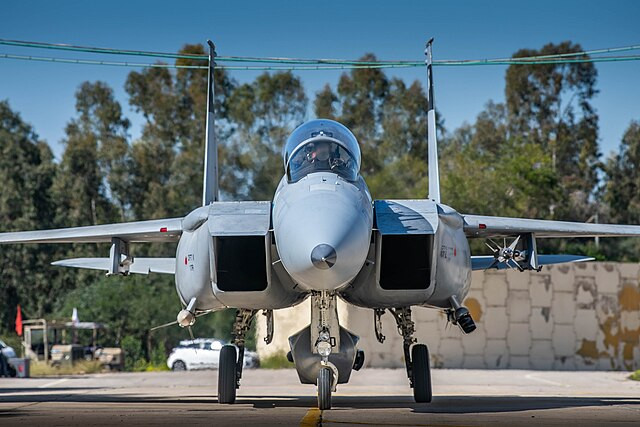Israel is preparing for potential preemptive strikes on Iran's nuclear facilities, citing a rare strategic opportunity following the collapse of Syria's Assad regime and the weakening of Iranian proxies across the region. Military officials announced Thursday that the Israel Defense Forces (IDF) and Air Force are bolstering readiness for such operations, seeing a moment to disrupt Tehran's nuclear ambitions.
The IDF's assessment follows a series of successful campaigns that dismantled much of Syria's air defense infrastructure. Israeli forces neutralized 86% of Syria's air defense systems, including advanced Russian-made SA-22 and SA-17 systems, during an offensive aimed at preventing advanced weaponry from falling into hostile hands. The operation also targeted airbases, weapon depots, and chemical weapons sites, significantly degrading Syria's military capabilities. With these defenses out of commission, Israeli officials believe they now have freer access to Syrian airspace, enabling more secure routes for potential missions into Iran.
The fall of the Assad regime, a key ally of Iran, has dramatically shifted the balance of power in the region. Isolated and weakened, Tehran is expected to push ahead with its nuclear program as a means of restoring deterrence. While Iran has long denied pursuing nuclear weapons, evidence cited by the International Atomic Energy Agency (IAEA) and U.S. intelligence suggests otherwise. Iran has enriched uranium to near weapons-grade levels, and experts warn it could amass sufficient fissile material for a nuclear weapon within weeks, should Supreme Leader Ayatollah Khamenei give the order.
Israeli officials have expressed alarm over these developments, arguing that inaction could embolden Tehran to fortify its nuclear facilities and expand its arsenal of ballistic missiles. According to military sources, Iran's regional allies, including Hezbollah, are at their weakest point in years, further reducing the risk of a retaliatory escalation against Israel. This dynamic, officials argue, presents a fleeting opportunity for decisive action.
Recent Israeli operations have underscored this readiness. In October, airstrikes targeted key Iranian sites, including the Taleghan 2 facility within the Parchin military complex, a location critical to nuclear weapons development. The destruction of this facility marked a significant setback for Iran's nuclear capabilities, according to officials.
Beyond Iran, Israel has also sought to contain its proxies. The IDF has bombed nearly all border crossings between Syria and Lebanon to prevent Hezbollah from acquiring advanced weaponry. Military officials believe the militant group will attempt to seize any high-value assets left unsecured in the aftermath of Syria's collapse. This strategy reflects a broader effort to neutralize the Iranian-led axis across the region while maintaining pressure on Tehran itself.
Military officials credit recent operations with enhancing their capability to execute long-range missions, including potential strikes on Iran. The IDF has described these missions as a learning experience that has improved their understanding of complex, high-stakes scenarios. They argue that Israel's current dominance over Syrian airspace offers an unparalleled advantage in pursuing such objectives.
However, the risks of escalation remain significant. Iran has previously retaliated against Israeli actions with missile barrages and drone strikes, raising the possibility of broader conflict if its nuclear facilities are targeted directly. International observers have warned that any unilateral action by Israel could complicate diplomatic efforts to address Iran's nuclear ambitions, particularly as negotiations over the 2015 nuclear deal remain stalled.
The international community has expressed mixed reactions to Israel's approach. While some allies back its stance against Iran's nuclear program, others advocate for continued diplomacy. The collapse of the Joint Comprehensive Plan of Action (JCPOA) in 2018 and subsequent tensions have left Israel increasingly reliant on its military capabilities to address perceived threats.




